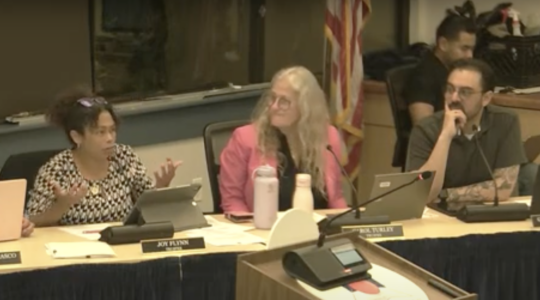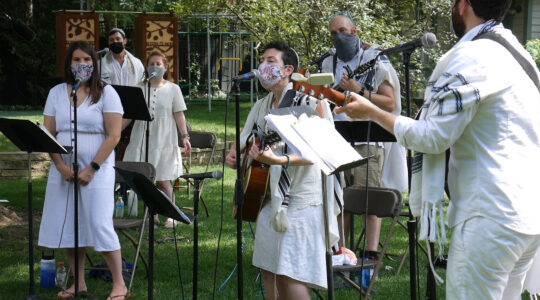(JTA) — The Women’s Resource Center at San Diego State University has apologized for including on its weekly newsletter an image of a female Palestinian terrorist holding a gun.
The image was part of the May 8 newsletter sent to the center’s email list, according to the university’s student newspaper, The Daily Aztec. The apology was sent May 14 in a campus-wide email, according to the report.
The photo was of Leila Khaled, a leader of the Popular Front for the Liberation of Palestine terrorist group, and included the text “From the river to the sea, Palestine will be free,” a Palestinian slogan laying claim to all of present-day Israel, with no other supporting text. It was featured alongside photos advertising campus events.
“The image and its implied framing are harmful and hateful toward members of our Jewish community and counter to our values of encouraging and promoting a safe, supportive and inclusive environment,” the center said in its apology, which asked forgiveness for any “disrespect” that may have been experienced by the Jewish community.
Khaled was arrested in 1970 by Israeli sky marshals while carrying two grenades in an attempt to hijack an El Al flight from Amsterdam with a partner, whom the security officers killed. British authorities released her in exchange for hostages from another hijacking a month after her arrest. She had already hijacked an American passenger plane in 1969, landing it in Damascus.
The university posted a statement about the incident on Twitter.
“The image and its implied framing are harmful and hateful toward members of our Jewish community and counter to our values of encouraging and promoting a safe, supportive and inclusive environment,” it said. “Since becoming aware of the concerning image, the university has imposed additional protocols with center staff to help ensure that this does not occur in the future.”
JTA has documented Jewish history in real-time for over a century. Keep our journalism strong by joining us in supporting independent, award-winning reporting.






